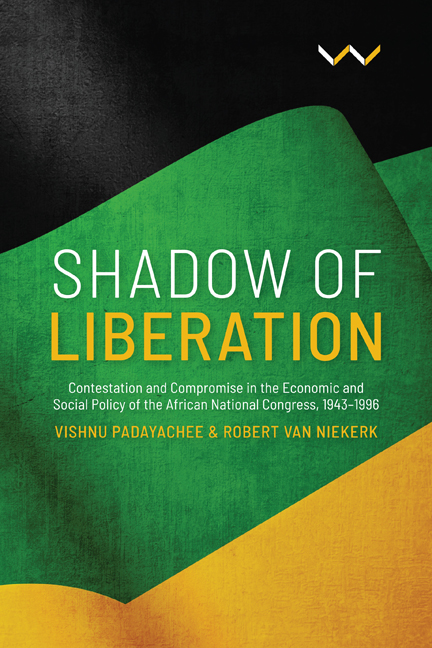 Shadow of Liberation
Shadow of Liberation Book contents
- Frontmatter
- Contents
- Acronyms and abbreviations
- Preface
- Acknowledgements
- Chapter 1 The Context of Economic and Social Policy-Making in the ANC
- Chapter 2 African Claims, the Freedom Charter and Social Democracy, 1943–1960
- Chapter 3 Incarceration, Exile and Homecoming, c.1960–c.1991
- Chapter 4 Economic Policy Debates during a Decade of Liberation, 1985–1993
- Chapter 5 On the Way to GEAR, 1994–1996
- Chapter 6 Making Sense of the Economic Policy Debates
- Chapter 7 South African Reserve Bank Independence
- Chapter 8 The Politics of Health Policy-Making in the Transition Era, 1990–1996
- Chapter 9 Interpretation and Conclusion
- Notes
- Bibliography
- Index
Preface
Published online by Cambridge University Press: 20 January 2022
- Frontmatter
- Contents
- Acronyms and abbreviations
- Preface
- Acknowledgements
- Chapter 1 The Context of Economic and Social Policy-Making in the ANC
- Chapter 2 African Claims, the Freedom Charter and Social Democracy, 1943–1960
- Chapter 3 Incarceration, Exile and Homecoming, c.1960–c.1991
- Chapter 4 Economic Policy Debates during a Decade of Liberation, 1985–1993
- Chapter 5 On the Way to GEAR, 1994–1996
- Chapter 6 Making Sense of the Economic Policy Debates
- Chapter 7 South African Reserve Bank Independence
- Chapter 8 The Politics of Health Policy-Making in the Transition Era, 1990–1996
- Chapter 9 Interpretation and Conclusion
- Notes
- Bibliography
- Index
Summary
In the pall of a destructive preceding political era under Jacob Zuma, characterised by corruption of the body politic and the institutions of our democracy and by poor economic performance, the president of the African National Congress, Cyril Ramaphosa, has promised a ‘new dawn’ for South Africa. He advocates that ‘… we put behind us the era of diminishing trust in public institutions and weakened confidence in leaders. We should put all the negativity that has dogged our country behind us, because a new dawn, inspired by our collective memory of Nelson Mandela and the changes that are unfolding, is upon us’ (Vuk’unzenzele 2018). We must ask what lessons have been learnt though from the political circumstances and policy choices made since democracy in 1994 in South Africa that require the arising of such a new dawn.
In contributing an answer, we feel an honest and forthright reflection is required of our recent economic and social policy-making history, in particular in the era of the democratic political transition between 1990 and 1996. Our book is therefore centred on the primary question that, given its historical state-led anti-inequality stance, how did the ANC in the 1990s come to do such a dramatic volte-face on economic and social policy and advocate for an essentially market-driven or neo-liberal approach. How did this U-turn happen? What were the forces that led the market-friendly charge? Indeed, as many have asked, did the ANC willingly go that way or was it pushed into such compromises?
We show here that the economic policy choices of the ANC leadership were based on a judgement that there was no alternative to the neo-liberalism that had dominated global policy debate since the early 1980s. Ironically, this approach, also referred to as the Washington Consensus, was slowly losing credibility following the publication of the Japanese-sponsored World Bank's The East Asian Miracle report (1993c). That report was highly critical of the core economic and social policy positions that emerged out of the Washington Consensus. This rethinking globally on failed macroeconomic policy in the early to mid-1990s was happening at precisely the time when the ANC was entering negotiations with the apartheid regime over a democratic constitution and the accompanying institutions of a post-apartheid state.
- Type
- Chapter
- Information
- Shadow of LiberationContestation and Compromise in the Economic and Social Policy of the African National Congress, 1943–1996, pp. ix - xviPublisher: Wits University PressPrint publication year: 2019
